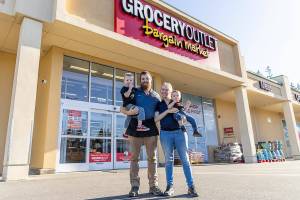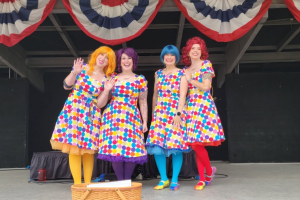Dr. Paul on keeping our seniors healthy this holiday season
Published 1:30 am Sunday, December 6, 2020
During this last year, I’ve been particularly concerned about older adults living alone. In the high-risk group, it has been especially difficult for elders to connect with their families, friends or neighbors. Many of these adults have become increasingly isolated and are feeling lonely. This can be worsened by the loss of our usual holiday traditions as we try to stem the tide of COVID-19 infections.
A majority of elders have been staying close to home and avoiding crowded places for months because they’re at higher risk of getting severely ill from COVID-19. The same behaviors that help this population protect their physical health by avoiding the virus can unfortunately also result in increased feelings of loneliness and isolation.
There is strong evidence that adults ages 50 and older who are socially isolated or lonely have greater health risk. Social isolation significantly increases a person’s risk of premature death from all causes, a risk that may rival those of smoking, obesity and physical inactivity.
Social isolation was associated with about a 50% increased risk of dementia and higher rates of depression, anxiety and suicide. Isolated elders had a 29% increased risk of heart disease and a 32% increased risk of stroke. Heart failure patients had a higher risk of hospitalizations and emergency room visits.
Social disconnection can have a serious impact on our more fragile elderly adults.
So, how can we help vulnerable elders living alone during the holidays?
Help seniors with technology. Most older adults didn’t grow up with smart phones, computers or social media. Add age-related memory problems, and senior citizens will just give up. They may feel that it’s just too hard to learn. Offer gentle encouragement and help them find and become familiar with a video calling app that’s easy to use. Try senior-friendly tech products designed to address the needs of seniors. The AARP website offers a number of guides for tech devices and apps for older adults. Be patient and persistent.
Plan “window visits” and outside socially distant get-togethers. Make arrangements to stop by the windows of seniors and chat by phone while they can see you. These can often feel much more like a normal visit. Arrange for socially distant outdoor visits — even in colder, wetter weather a brief real visit can mean a lot to a lonely elder.
Send post cards and letters. Those of us born in the mid 20th century appreciate snail mail even more than email or texts! Sure, it’s old fashioned to send a card, but then again many of us older adults find the written messages meaningful and heartwarming.
Send goodie baskets. During this year, I’ve been sending gift baskets to my family as well as money for restaurant delivery. Surprise your senior family members with a hot meal from a favorite restaurant delivered to their door. Send flowers, fruit or bagels to your loved ones. These tokens of appreciation remind our seniors that they are in our hearts and minds.
Connect with your senior family members often. Sadly, all of my senior family members have passed away and, now, I’m the senior relative! My kids call or text me frequently, sending me pictures of my grandchildren. I regularly call my aging friends that live alone. I tend to see my elderly patients more frequently via teletherapy. I know they need the additional support.
By checking in with our elders we can keep a close eye on how they are coping. Are they experiencing changes in sleep or eating patterns? Have they been sleeping more or not getting out of bed? Are they drinking more? Are they talking more about death? How is their health?
If they do seem to be suffering from depression or declining health, encourage them to contact their primary care provider either for an in-office, phone or video visit.
During the holidays, our senior citizens will need even more of their family and friends’ tender loving care.
Paul Schoenfeld is a clinical psychologist at The Everett Clinic. His Family Talk blog can be found at www.everettclinic.com/family-talk-blog.




